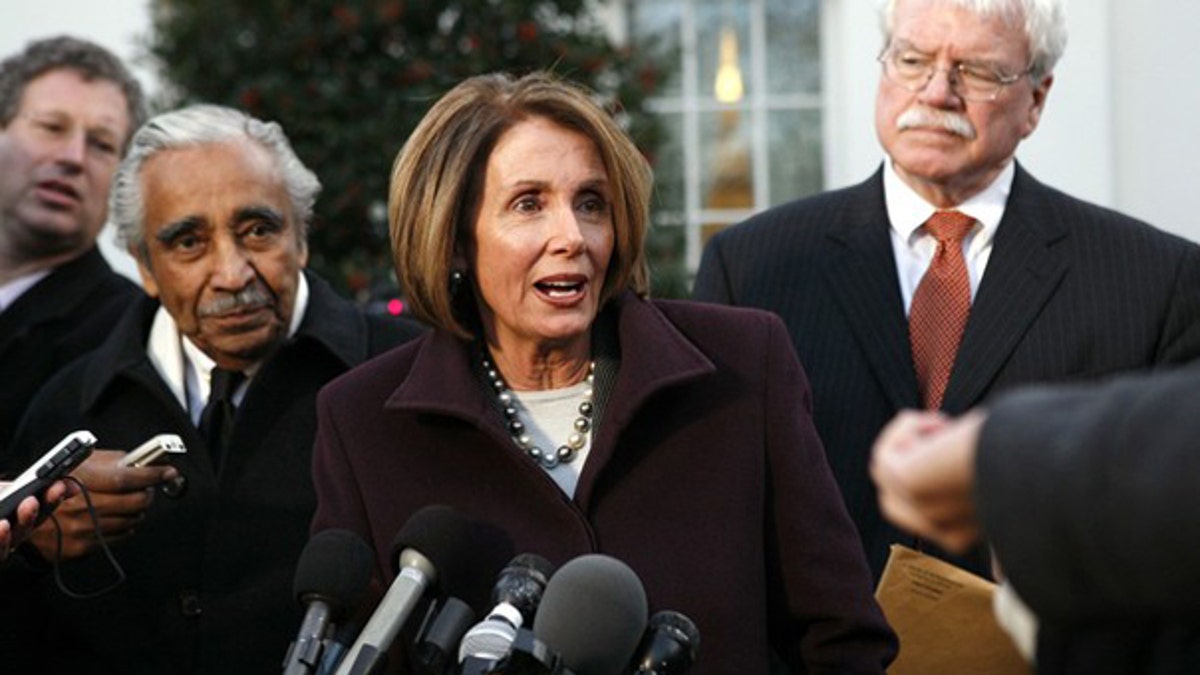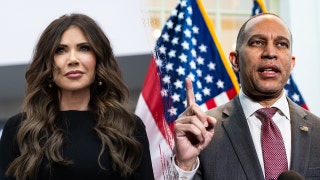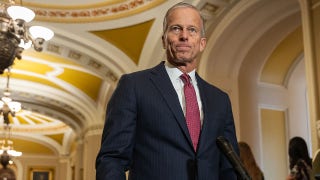
House Speaker Nancy Pelosi talks to reporters after a meeting with President Obama and House Democrats at the White House Jan. 6. (Reuters Photo)
The White House and congressional leaders worked through the afternoon Wednesday to try to reach elusive middle ground on health care reform, as House Democrats complained they were being pressured into accepting the Senate version of the bill and warned of an "impasse" in talks.
Those Democrats said Tuesday that talks could erode if the Senate doesn't start making some compromises of its own. Democratic leaders are trying to blend the House and Senate versions of the health care reform bill so they can send a unified product to President Obama for his signature. But neither side wants to budge too much on certain issues.
Rep. Raul Grijalva, D-Ariz., said the Senate version would not get the necessary 218 votes to pass in the House and warned that "it's going to be a difficult problem" to round up support in the House if Senate leaders insist on their language. He said they could hit "an impasse." House leaders have already backed off a controversial government-run insurance program, since it was not in the Senate bill.
"We keep hearing them squeal like pigs in the Senate that they had a tough time getting to 60 (votes). Well, it wasn't exactly a picnic for us to get to 218," said Rep. Anthony Weiner, N.Y.
Asked about how congressional leaders would merge the bills, House Ways and Means Committee Chairman Charlie Rangel, D-N.Y., said, "With great difficulty."
Several areas of disagreement remain, including whether to apply Medicare taxes to dividend income, whether to tax high-value insurance plans and whether to set up state-based or national insurance exchanges. These issues are all on the table Wednesday.
But the White House is downplaying the drama.
"While the two bills are very similar to begin with, work on bridging the final differences is still going on, and there simply isn't anything final to discuss yet," White House Communications Director Dan Pfeiffer said.
House Speaker Nancy Pelosi called a late afternoon meeting Tuesday with key labor leaders, who expressed support for the House version. Labor leaders fear that the tax on high-cost insurance plans in the Senate version will impact union-provided health care plans. The House version uses a surtax on the wealthy to finance part of the bill.
"I love the House bill," said Andy Stern, president of the Service Employees International Union, as he exited Pelosi's office. "We made very clear we like the House bill."
Pelosi also said that national exchanges, versus the state-based ones in the Senate bill, are "essential to having a working plan."
House leaders have signaled that they're willing to give up on a government-run insurance plan, which is not included in the Senate bill, but other issues like the nature of the exchanges remain as sticking points.
"Hopefully we'll have an exchange that looks very much like the one we have in the House," House Majority Leader Steny Hoyer said.
But it remains to be seen when congressional leaders can forge a final version of the legislation.
"There have been a lot of discussions and no decisions," said Rep. Chris Van Hollen, D-Md.
An adviser to Senate Majority Leader Harry Reid told Fox News Tuesday that the compromise that is being hammered out among leadership in both chambers behind closed doors could be sent to the Congressional Budget Office as soon as the end of the week. The aide said it would then take about another 10 days before either chamber would try to pass the bill a final time.
Among the remaining House-Senate disputes are restrictions each chamber approved on federal financing of abortions. The House voted for the stricter version of the two, and some anti-abortion and abortion-rights Democrats have threatened to abandon the final package unless the language is to their liking.
Rep. Bart Stupak, D-Mich., who led the successful fight last month for the House bill's tight anti-abortion language, said in an interview Tuesday that he has had two broad discussions with House leaders about that issue. He said he believes his provision -- or something very close to it -- has popular support but did not rule out striking a compromise.
"How we work that out I guess remains to be seen, but I think in the long run it can be worked out," he said.
Fox News' Chad Pergram and Trish Turner and The Associated Press contributed to this report.












































